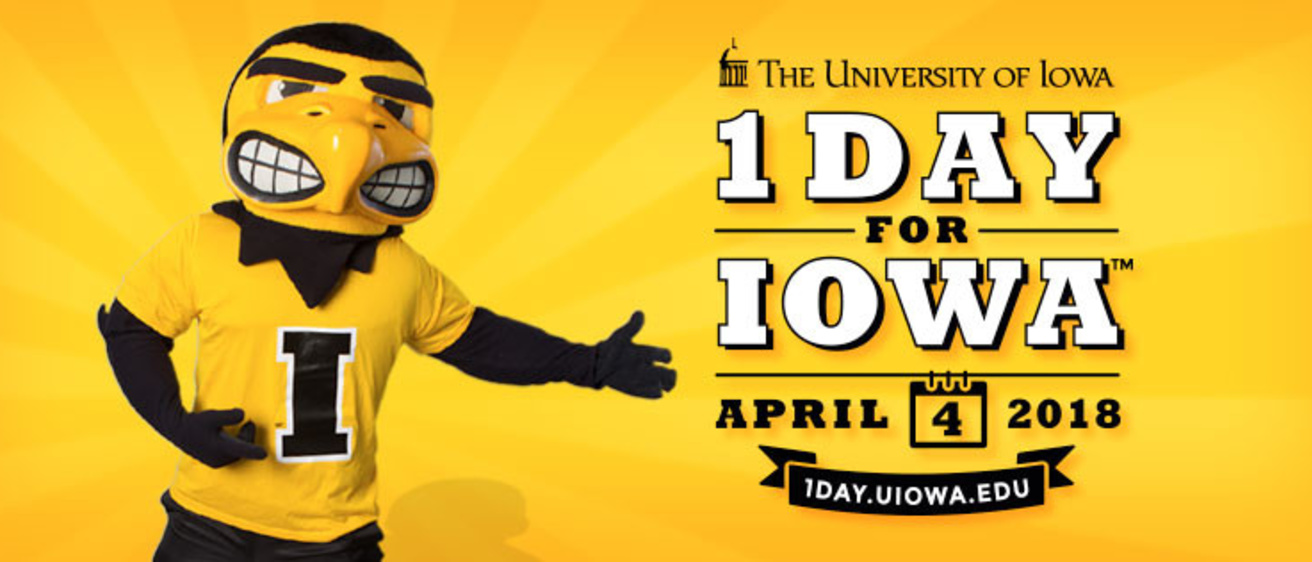During the inaugural One Day for Iowa fundraising campaign, the University of Iowa Department of History proved its social media savvy and attracted a number of donors on par with larger campus units, such as the Roy J. and Lucille A. Carver College of Medicine. This year, One Day for Iowa will take place April 4, and the department intends to build on its success.
On April 4, the UI Department of History, along with many other colleges and programs across campus, will campaign to raise funds for their respective areas.
Find out more.
“We did see great success,” says Elizabeth Heineman, professor, chair, and DEO of the department, “and I believe the reason was that we underscored the ways history makes a real difference to students and to the community.”
One Day for Iowa is a 24-hour online give-a-thon organized by the UI Center for Advancement (UICA). Everyone connected to the UI, whether they be faculty, staff, students, parents, or alumni, is invited to give to the university areas they care about most. The UICA encourages colleges and departments to promote themselves to their respective constituencies and the online donations are often matched by major donors. This year, a generous donor will match the first $5,000 donated to the Department of History.
Heineman says the Department of History’s upcoming efforts will mirror last year’s, which involved communicating with donors about programs that history lovers care about.
One program provides a stipend for a history internship, giving history students professional development experience in their field and helping them pay bills without having to work a job unrelated to history. Another program, “Rapid Response History,” comprises a for-credit lecture series that matches current events to their historical context.
The department also offers many courses in which history students do hands-on work like visiting archives and conducting oral history interviews. This helps to compile the history of Iowan communities—from indigenous Iowans to towns established in the 19th century and the stories of Iowa’s newest immigrants.
The success of the department’s One Day for Iowa social media campaign in 2017 was a long time in the making and involved consistent efforts to build community, Heineman says.
“Community has to start with the students themselves,” says Heineman, “so our undergraduate history club—the Hawkeye History Corps—is incredibly important, as is our Graduate History Society.”
Heineman says the department’s social media account is active year-round, cultivating an audience. In addition, the department sends newsletters and is in close communication with students and faculty, encouraging them to talk to their friends and family. This effort helps create a community around the department, which has proven to be a resource for fundraising.
Heineman’s advice for other groups is to similarly build community and then communicate with that community about shared passions.
“People contribute to history because they believe in history and the ways we use history to better the community and improve student experience,” says Heineman. “When people hear about our expanding internship opportunities for students, or they see our faculty providing expert testimony for legal proceedings and policy deliberation, or they learn from their children about innovative classes they've taken with us, then they know that donations to history will be put to good use.”
